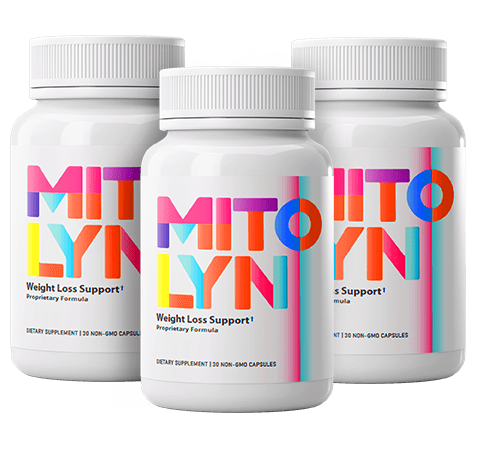Unlock the Power of Plant-Based Protein: Top Sources for a Healthy Lifestyle
Plant-based protein has gained increasing popularity in recent years, as more people are looking for sustainable and healthy alternatives to traditional animal-based protein sources. Whether you are a vegan, vegetarian, or simply looking to incorporate more plant-based foods into your diet, there are numerous plant-based protein sources that can help you meet your nutritional needs. In this article, we will explore the top sources of plant-based protein and how you can incorporate them into your daily meals for a healthier lifestyle.
Why Choose Plant-Based Protein?
Plant-based protein offers a wide range of health benefits, including lower cholesterol levels, reduced risk of heart disease, and improved digestion. Additionally, plant-based protein sources are often more sustainable and environmentally friendly than animal-based sources, making them a great choice for those looking to reduce their carbon footprint. Plant-based proteins are also typically lower in saturated fats and cholesterol, making them a healthier option for those looking to improve their overall health.
Top Plant-Based Protein Sources
There are many plant-based protein sources to choose from, each offering a unique combination of essential nutrients and health benefits. Some of the top plant-based protein sources include:
1. Legumes
Legumes, such as beans, lentils, and chickpeas, are excellent sources of plant-based protein. They are also rich in fiber, iron, and folate, making them a nutritious addition to any diet. Legumes can be easily incorporated into soups, salads, and stews, or used as a meat substitute in dishes like chili or tacos.
2. Nuts and Seeds
Nuts and seeds are another great source of plant-based protein. They are also rich in healthy fats, vitamins, and minerals. Some of the top nuts and seeds for protein include almonds, chia seeds, and pumpkin seeds. Nuts and seeds can be eaten on their own as a snack, added to smoothies, or used as a topping for salads and oatmeal.
3. Quinoa
Quinoa is a complete protein, meaning it contains all nine essential amino acids that the body needs. It is also rich in fiber, iron, and magnesium. Quinoa can be used as a base for salads, stir-fries, and grain bowls, or used in place of rice or pasta in dishes like risotto or stir-fry.
4. Tofu and Tempeh
Tofu and tempeh are both made from soybeans and are excellent sources of plant-based protein. They are also rich in calcium and iron. Tofu and tempeh can be used in a variety of dishes, such as stir-fries, curries, and sandwiches.
5. Edamame
Edamame, or young soybeans, are another great source of plant-based protein. They are also rich in fiber, vitamins, and minerals. Edamame can be eaten on their own as a snack, added to salads, or used in stir-fries and soups.
How to Incorporate Plant-Based Protein into Your Diet
There are many ways to incorporate plant-based protein into your diet, whether you are a seasoned vegan or just starting to explore plant-based eating. Here are some tips for adding more plant-based protein to your meals:
1. Start with Meatless Mondays
Try incorporating a meatless meal into your weekly routine, such as a veggie stir-fry with tofu or a lentil soup. Meatless Mondays are a great way to experiment with plant-based protein sources and discover new recipes.
2. Experiment with Different Protein Sources
Don’t be afraid to try new plant-based protein sources, such as tempeh, seitan, or hemp seeds. Each plant-based protein source offers a unique flavor and texture, so experiment with different options to find the ones you enjoy the most.
3. Add Protein to Every Meal
Make sure to include a source of plant-based protein in every meal to help you feel satisfied and energized throughout the day. Some easy ways to add protein to your meals include adding beans to salads, using nuts as a topping for oatmeal, or adding tofu to stir-fries.
Common Questions about Plant-Based Protein
1. Can you get enough protein from plant-based sources?
Yes, it is possible to get enough protein from plant-based sources, as long as you include a variety of protein-rich foods in your diet. Legumes, nuts, seeds, and whole grains are all excellent sources of plant-based protein that can help you meet your daily protein needs.
2. Are plant-based proteins complete proteins?
Some plant-based proteins, such as quinoa and soy, are considered complete proteins because they contain all nine essential amino acids that the body needs. Other plant-based proteins may be incomplete, but you can still get all the essential amino acids by combining different protein sources throughout the day.
3. Can plant-based proteins help with weight loss?
Plant-based proteins can be an excellent choice for weight loss, as they are typically lower in calories and saturated fats than animal-based proteins. Additionally, plant-based proteins are often rich in fiber, which can help you feel full and satisfied after meals, reducing the likelihood of overeating.
Conclusion
Plant-based protein offers a wide range of health benefits and can be easily incorporated into your daily meals for a healthier lifestyle. By including a variety of plant-based protein sources in your diet, you can meet your nutritional needs while enjoying delicious and satisfying meals. Whether you are a vegan, vegetarian, or simply looking to improve your overall health, plant-based protein is a great choice for a sustainable and nutritious diet.
Start exploring the top plant-based protein sources mentioned in this article and experiment with different recipes to find the ones that you enjoy the most. With a little creativity and planning, you can unlock the power of plant-based protein and reap the numerous health benefits it has to offer.










